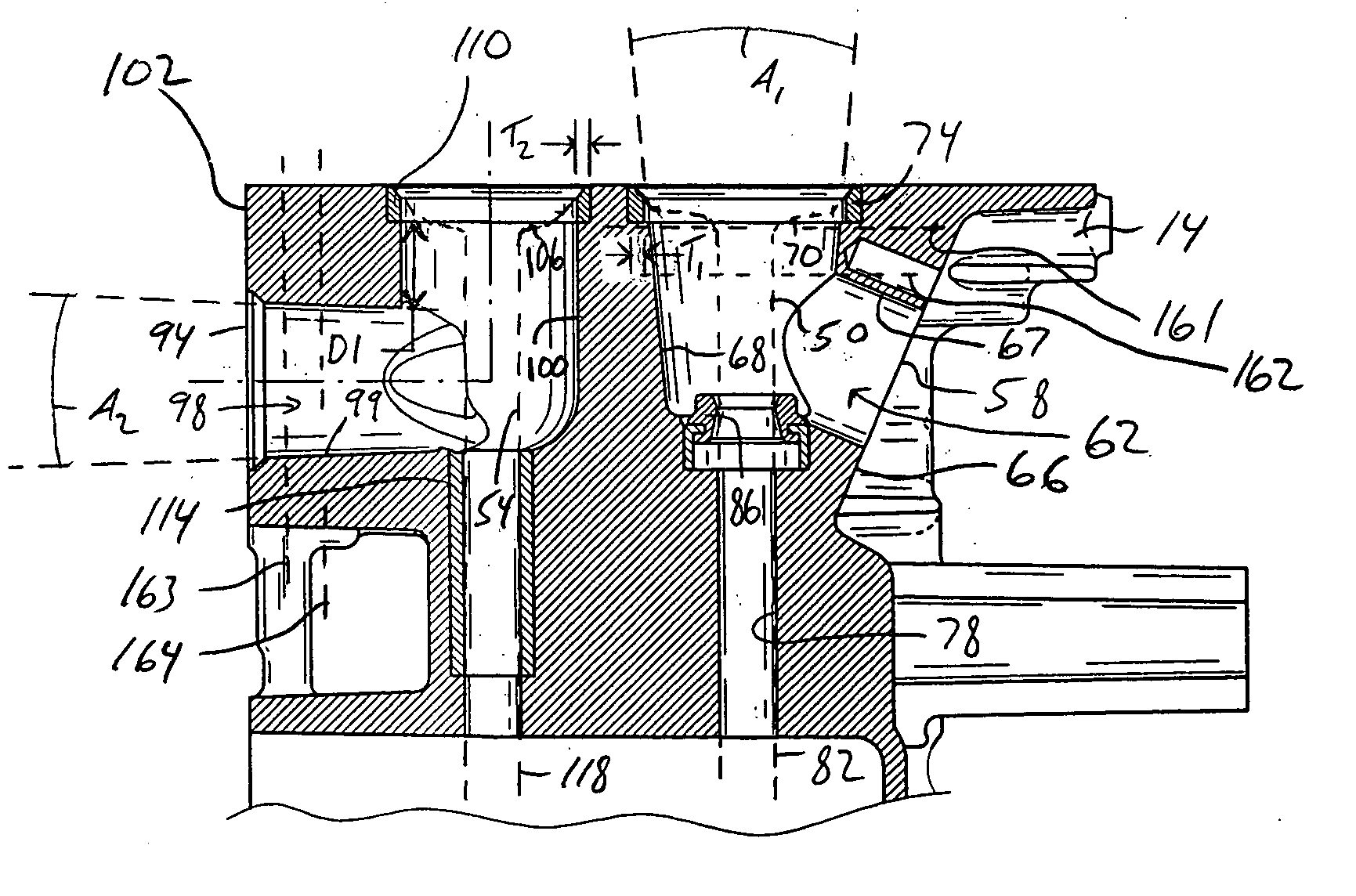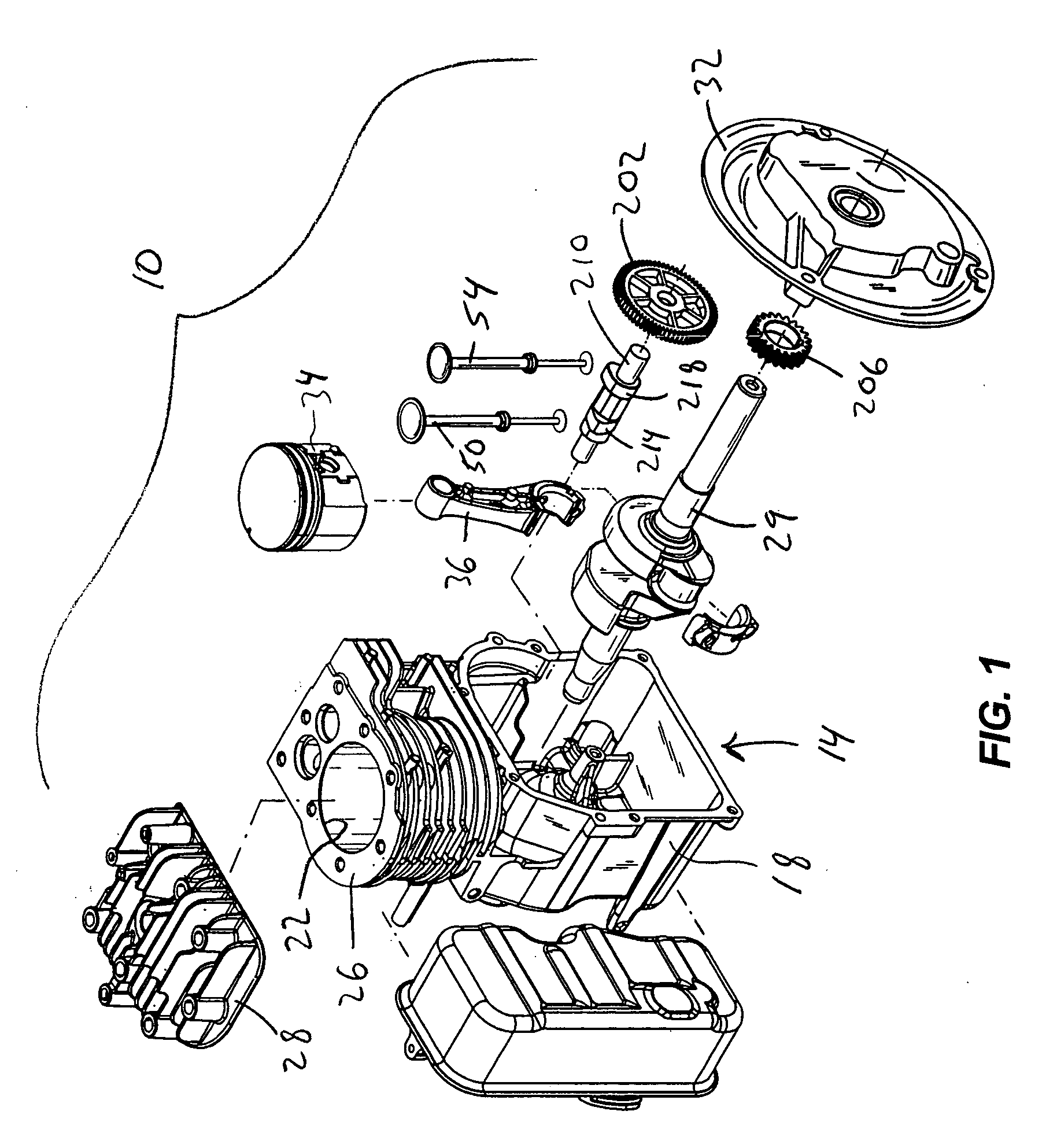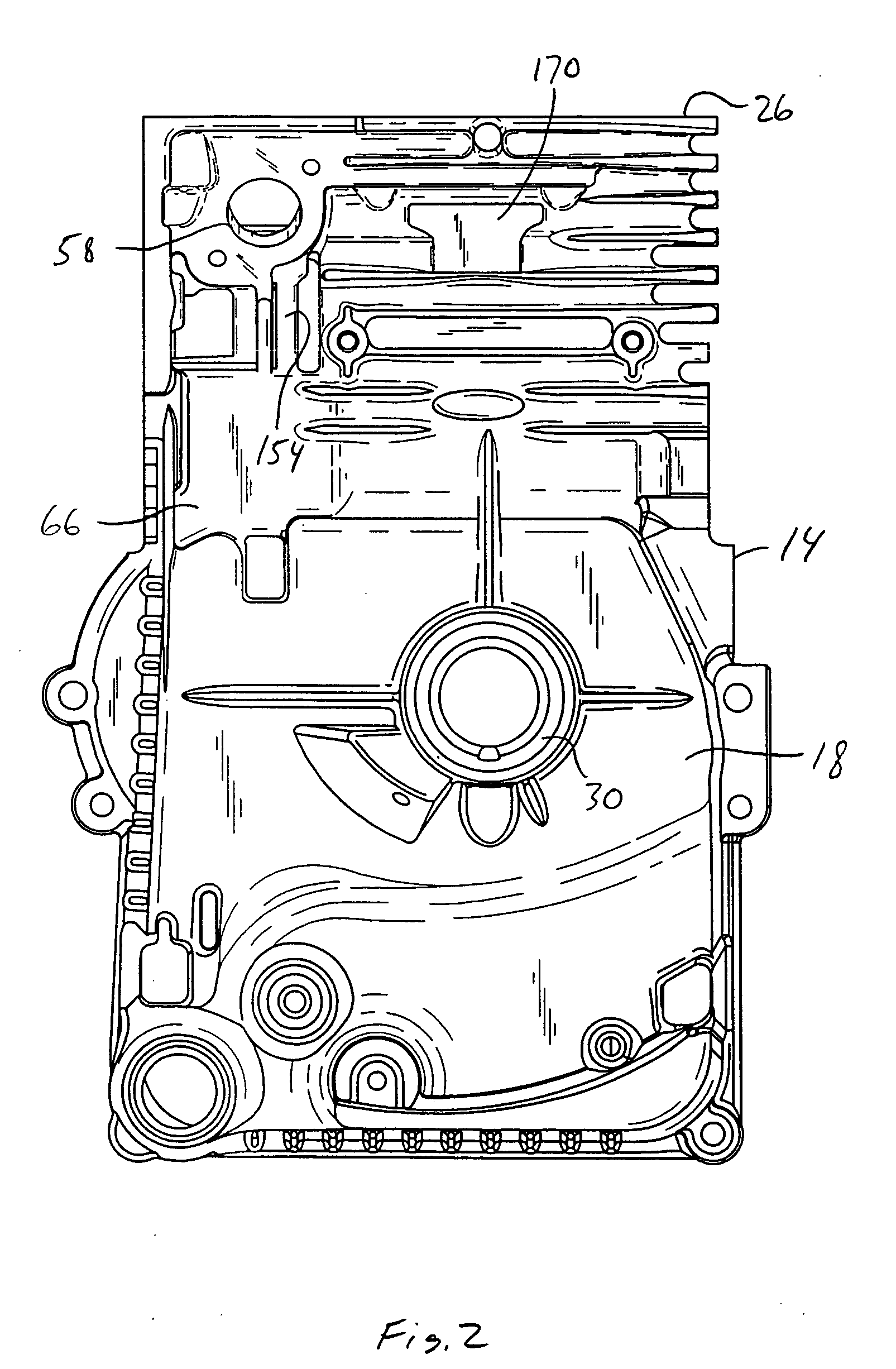Air flow arrangement for a reduced-emission single cylinder engine
a single-cylinder engine and air flow arrangement technology, applied in the field of engines, can solve the problems of difficult integration of other more sophisticated technologies into small engines, high cost, etc., and achieve the effect of improving air-fuel mixing and properly calibrating
- Summary
- Abstract
- Description
- Claims
- Application Information
AI Technical Summary
Benefits of technology
Problems solved by technology
Method used
Image
Examples
Embodiment Construction
[0021]FIGS. 1-12 illustrate various features and aspects of a reduced-emission, four-cycle, single cylinder engine 10 (only a portion of which is shown). Such a “small” engine 10 may be configured with a power output as low as about 1 Hp and as high as about 20 Hp to operate engine-driven outdoor power equipment (e.g., lawn mowers, lawn tractors, snow throwers, etc.). The illustrated engine 10 is configured as an approximate 3.5 Hp single-cylinder, air-cooled engine having a displacement of about 9 cubic inches. The illustrated engine 10 is also configured as a vertical shaft engine, however, the engine 10 may also be configured as a horizontal shaft engine.
[0022] With reference to FIG. 1, the engine 10 includes an upper engine housing 14 which may be formed as a single piece by any of a number of different processes (e.g., die casting, forging, etc.). The engine housing 14 generally includes a crankcase 18 containing lubricant and a cylinder bore 22 extending from the crankcase 18...
PUM
 Login to View More
Login to View More Abstract
Description
Claims
Application Information
 Login to View More
Login to View More - R&D
- Intellectual Property
- Life Sciences
- Materials
- Tech Scout
- Unparalleled Data Quality
- Higher Quality Content
- 60% Fewer Hallucinations
Browse by: Latest US Patents, China's latest patents, Technical Efficacy Thesaurus, Application Domain, Technology Topic, Popular Technical Reports.
© 2025 PatSnap. All rights reserved.Legal|Privacy policy|Modern Slavery Act Transparency Statement|Sitemap|About US| Contact US: help@patsnap.com



